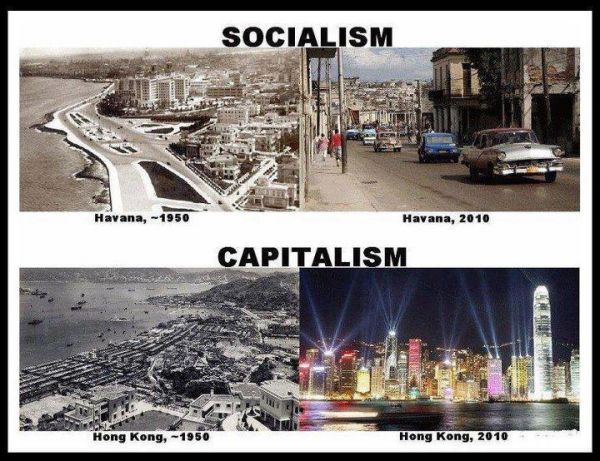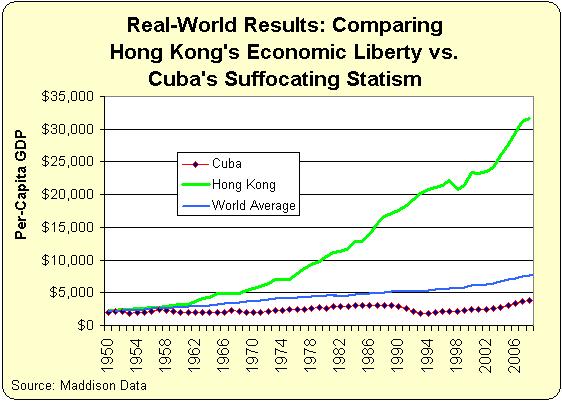Early this year, I shared an amusing but accurate image that showed an important difference between capitalism and socialism.
And in 2012, I posted a comparison of Detroit and Hiroshima to illustrate the damage of big government.
Well, if you combine those concepts, you get this very pointed look at the evolution of Cuban socialism and Hong Kong capitalism.

Some might dismiss these photos as being unrepresentative, and it’s reasonable to be skeptical. After all, I’m sure it would be easy to put together a series of photos that make it seem as if the United States is suffering from decay while France is enjoying a boom.
So let’s go to the data. In previous posts, I’ve shared comparisons of long-run economic performance in market-oriented nations and statist countries. Examples include Chile vs. Argentina vs. Venezuela, North Korea vs. South Korea, Cuba vs. Chile, Ukraine vs. Poland, Hong Kong vs. Argentina, Singapore vs. Jamaica, and the United States vs. Hong Kong and Singapore.
Now let’s add Cuba vs. Hong Kong to the mix.

Wow, this is amazing. Through much of the 1950s, Hong Kong and Cuba were economically similar, and both were very close to the world average.
Then Hong Kong became a poster child for capitalism while Cuba became an outpost of Soviet communism. And, as you might expect, the people of Hong Kong prospered.
What about the Cubans? Well, I suppose a leftist could argue that they’re all equally poor and that universal deprivation somehow makes Cuban society better Hong Kong, where not everybody gets rich at the same rate.
But even that would be a lie since Cuba’s communist elite doubtlessly enjoys a very comfortable lifestyle. So while the rest of the country endures hardships such as a toilet paper shortage, the party bosses presumably drink champagne and eat caviar.
The bottom line is that statists still don’t have an acceptable answer for my two-part challenge.

